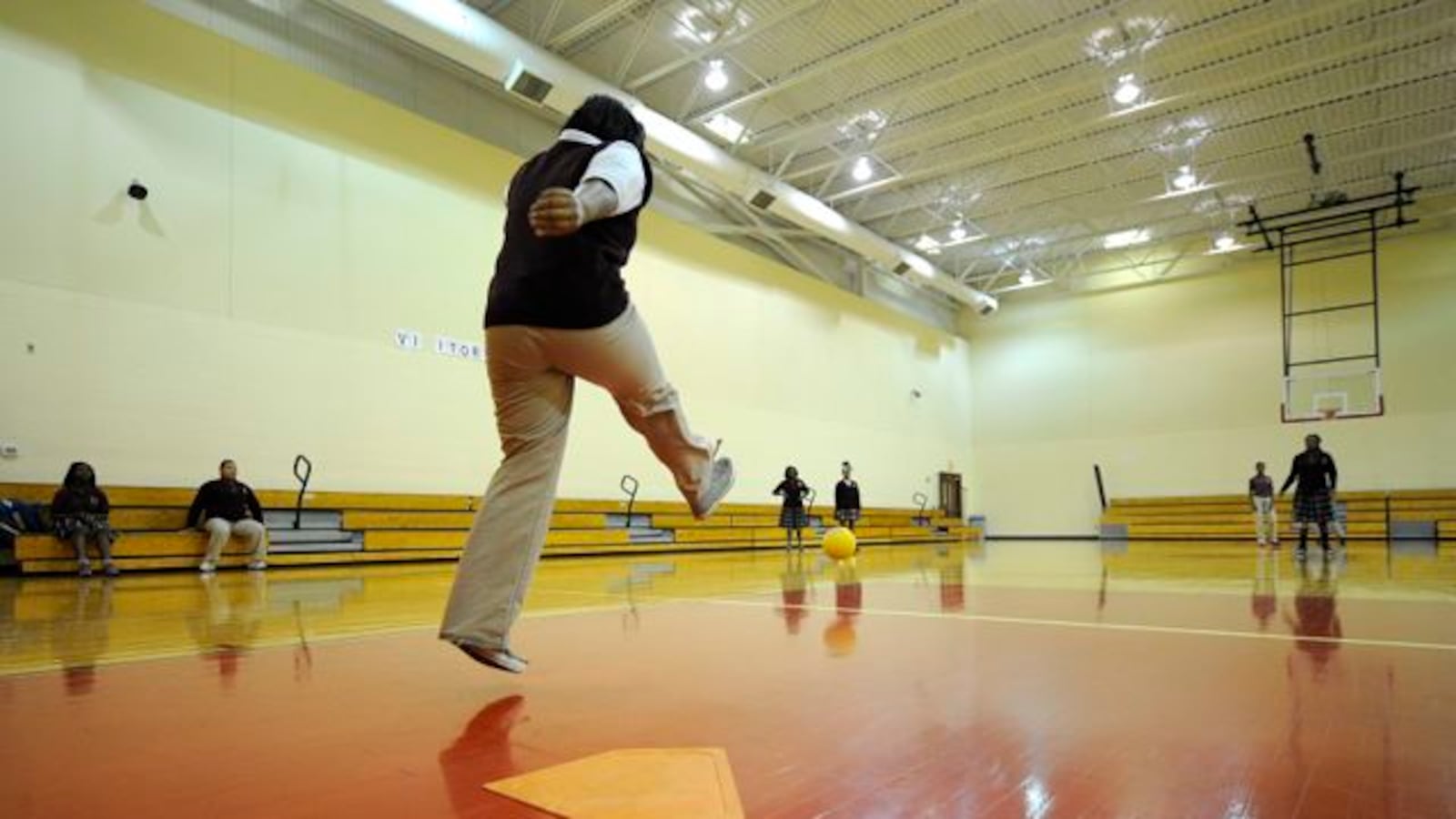Since the 2002 advent of charter schools in Indiana, deciding who can enroll when there weren’t enough seats has been done by a random lottery. Nobody gets to jump ahead to the front of the line.
But that could change under a bill approved by the Senate Education Committee Wednesday.
Under Senate Bill 321, kids who apply to a charter school, and their siblings, would be enrolled ahead of the lottery if they came from another charter school run by the same organization. Proponents say it guarantees charter schools don’t end up out in the cold when they switch schools and helps keep families together.
Marcus Robinson, CEO of Tindley Accelerated Schools, said the change is needed so kids who grow up in Tindley schools aren’t forced out as they age. Tindley operates an elementary school, two middle schools and a high school.
What happens, he said, to a student who finishes eighth grade at one Tindley school and wants to stay with his classmates as they move to Tindley’s high school?
“Our eighth graders cannot count on being seated in our ninth grade,” he said. “We are looking for an opportunity to say to those parents, ‘you will be able to continue a Tindley education in the fall if you so wish.’ ”
But Sen. Greg Taylor, R-Indianapolis, said he was surprised the bill appeared ready to simply dispense a section of the charter law designed to ensure fairness and transparency.
“Now we eliminate the lottery system?” he asked. “We’re making all these exceptions for charter schools. What about for public schools?”
Senate Bill 321 is mostly aimed at offering funding flexibility to networks of charter schools. It would allow a network to act in a role similar to a school district, with the ability to shift funds among schools and manage the money in one set of accounts. Under current law, each individual charter school is treated as the equivalent of a small school district, requiring separate accounts and prohibiting co-mingling of funds.
But also tucked in the bill is some enrollment flexibility.
The bill doesn’t eliminate lotteries and would keep the process open to public view. Many charter schools make their lotteries public, or videotape them to assure anyone with questions they were conducted fairly. But giving preference would still be a first for Indiana.
David Harris, CEO of the Indianapolis-based school reform group The Mind Trust, recalls attending many charter school lotteries when he oversaw former Mayor Bart Peterson’s charter school office. The whole idea is to ensure nobody gets an unfair advantage.
“They need to be public,” he said. “They need to be transparent. It needs to be a process that ensures 100 percent equity of access.”
But Harris is OK with the proposed change, saying it makes sense for the students who have been in a charter school network and their families. The bill should not be a major impediment to equal access to popular schools, he said.
“You want to make sure there is fair access to schools in the first place,” he said. “Equity of access is important. But you have that going into kindergarten. Their ability to stay within the network to graduation seems like exactly the right thing to do. It’s the right thing for families.”
Mark Russell, education director for the Indianapolis Urban League, said he had not yet seen the bill, but thought the change could bring problems. The bill might need more discussion, he said. He likened the enrollment preferences in the bill to a practice that some colleges use to make it easier for children of alumni, sometimes called ‘legacies,’ to enroll.
“It’s very troubling on its face,” he said. “I do not like the idea of having ‘legacy admissions’ in public schools. They are, after all, public schools.”
Taylor also asked at Wednesday’s hearing for assurances that charter schools would not be given flexibility beyond what is allowed at other public schools that use lotteries, such as magnet schools.
Magnet schools usually have a specialized instruction, such as Montessori curriculum or a classes in medicine. In Indianapolis Public Schools, most magnets are not selective in admission. Anyone can enroll if there is space. But IPS holds lotteries at its most popular magnet schools when there are more applicants than seats.
Like the proposal in the charter school bill, IPS offers priority to its own students.
Because Indiana allows students to transfer between school districts, magnet schools sometimes have applicants who don’t live in the district. They are allowed to attend IPS magnets, but only if there is extra space, said Rocky Grismore, the district’s student assignment director.
“As long as we have a waiting list of IPS kids we don’t seat out-of-district students through a lottery,” he said.
That’s what charter schools say they want, too, and their advocates say it’s only fair.
Derek Redelman, vice president of the Indiana Chamber of Commerce, said he wants for charters the same option he had as boy, when he attended IPS. When he was in middle school, he didn’t have to go through a lottery for the chance to follow his classmates to the same high school.
“I (didn’t) have to wonder throughout my middle school years if I will get to continue with that program,” he said.
But for students vying to enter the system from outside — whether it’s an IPS magnet school or one of the Tindley schools — the state mandates open enrollment as long as there is space.
“And if enrollment is maxed out when the student initially enters, then they’d have to apply through a lottery process,” he said. “So the open enrollment and lottery systems are still in place.”


